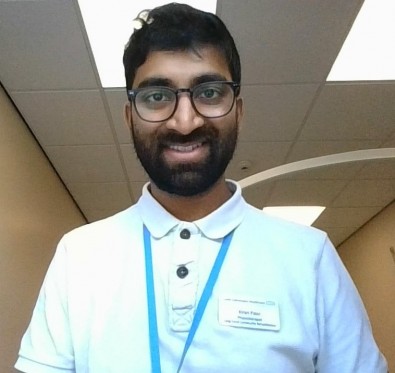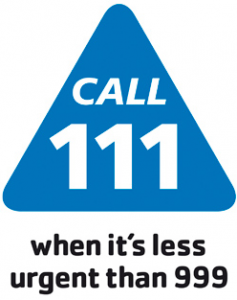Celebrating our Black and Minority Ethnic Allied Health Professionals - Meet Kiran
 What is your Allied Health Professional (AHP) profession?
What is your Allied Health Professional (AHP) profession?
I am a Physiotherapist.
What is your heritage?
I am of South Asian and British heritage. I was born in England and my parents were both born in India. I am of the Hindu faith.
How did you get into this profession? How did you find out about it? What subjects/courses did you do at school/college? What support/encouragement did you have to follow this career? What influenced your choice of profession?
I found out about the profession through my interest in sport and having witnessed a Community Physiotherapist treating my grandma at my mum's workplace (a GP Practice).
I studied A Level Biology, PE, IT and English Language at school and then went onto complete work experience at local hospitals. I then studied Physiotherapy at the University of Bradford.
I’ve always had my Mum’s support but growing up my family were quite traditional and originally, they wanted me to follow a career in Maths or something similar. I really enjoyed practical work and helping people, so fortunately my Mum was able to support me with finding a career that was fulfilling as well as having potential for long term career growth. Sometimes tradition or cultural expectations can outweigh personal interests or choice, so I was fortunate to have a family who supported me in all aspects and provided me with a platform for opportunity. Physiotherapy was able to fulfil my desire to help people and be on my feet!
How easy was it to onto a training programme? What were your thoughts before and after starting the course? Did you face any challenges and how did you overcome them?
It was difficult for me to get onto the University course to begin with, my predicted grades did not meet the criteria and I went to a school with limited opportunities. Fortunately, the University of Bradford took a chance on me based on my ability to perform in a group-based activity type interview, rather than looking at me as words and numbers on a sheet of paper. They offered me a conditional offer based on my upcoming exam results. I worked really hard to achieve the grades required as I knew I was given an opportunity.
I was extremely nervous before and after starting the course. I was 18 years old, fresh out of school, and had never really interacted with people from different ages and experiences on an academic/professional level before, as I never had a job before. I initially found it difficult to fit in, even though I went to a university in Bradford where I was born and raised, there weren’t many people from an ethnic minority at the time. I was still living at home and many of my peers were living in university halls and went out to social events so got to know people quickly. When I started to attend social events, I found it difficult to talk to people but over time my confidence built, and I started to find my path.
I had many challenges during my studies, firstly the jump from A Levels to University felt huge! At school I was generally ‘fed’ the learning I needed to do, however at university there was a lot of self-directed learning, which was difficult at the start. I failed my first piece of coursework and my first placement, which was devastating especially as no one else around me failed. I continued to work hard and improved my learning and went on to pass my degree with a 2:1. Another challenge was being from an ethnic minority, as I had to try to ‘fit in’ with the group around me whilst trying to maintain my own identity, however I soon learnt that I could bring my own experiences and personality to any situation.
What is your current role? What does a typical day look like? What do you love about your role? What would you like to change?
I currently work as a Specialist Physiotherapist in a Community Long Covid Rehabilitation Service.
My workday can vary massively. One day I could undertake specialist assessment and treatments in a clinic setting with people suffering with Long COVID and on other days I could be working on screening, triaging referrals or projects for the service. The variety is great and has given me an opportunity to learn different skills.
I wouldn’t change much, but I have been given the opportunity to work on a project of helping to understand and reduce health inequalities in Leeds, and to improve access to healthcare and our service. I would always want to promote diversity and inclusion within a workplace too – having people from all different backgrounds, cultures and heritages is great!
What are your career aspirations? What has been your career path to date? What challenges have you faced and how have you overcome them?
My career aspirations are to continue to progress within my speciality role and to develop the skills required in a leadership role. I also aim to continue to promote inclusion and diversity within the workplace.
I originally worked as a therapy assistant in an orthopaedic setting, then progressed to working as a qualified physiotherapist in an acute rotational setting. I then moved onto specialising in respiratory in an acute rotational setting, and then to specialising within critical care and surgery/ICU, then moving to the community setting. More recently I have been working within a community rehabilitation setting.
I have faced some challenges within the workplace, firstly being from an ethnic minority and working within a predominantly white workplace is a challenge itself. Everyone I have worked with has generally been very welcoming and supportive, however there has been times where I was exposed to unconscious bias and witnessed discrimination in the workplace. I have experienced tokenism personally, but I always feel you experience things for a reason and learning from that is the most important thing – for everyone involved. If I was to experience any kind of discrimination now I would hope to feel more comfortable challenging it, as we are always learning as groups and individuals.


